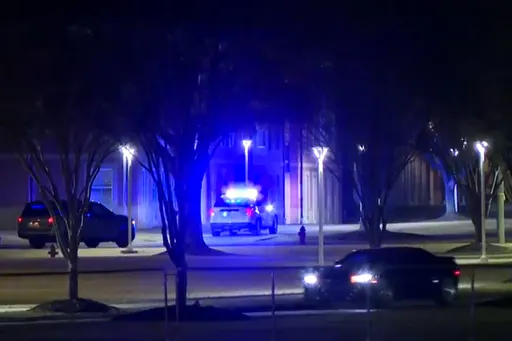Ursula Gertrud von der Leyen, the centre-right German defence minister, became the first woman to hold the presidency of the EU Commission following a secret vote among MEPs on July 17. Out of 733 MEPs, 383 voted in favour of Von der Leyen, helping her to secure the 374 votes -- an absolute majority among the EU assembly members.
The president-elect, who's known to be a close aide of German Chancellor Angela Merkel, gave a speech immediately after she was named for the top post.
"The trust you placed in me is the confidence you placed in Europe. Your confidence in a united and strong Europe, from east to west, from south to north,” she said.
She will be replacing the Commission President Jean-Claude Juncker on November 1.
From being a physician to Minister of Defence
The 60-year-old defence minister was born in Brussels in October 1958. Her family moved to Germany when she was 13. Von der Leyen is married with seven children and trained as a gynaecologist in Hanover. She has also studied economics at the London School of Economics before taking up a degree in medicine.
In 1990, Von der Leyen became a member of the Christian Democratic Union (CDU), like her father Ernst Albrecht, who was a German politician of the CDU and a former high-ranking European civil servant.
In 2003, she was appointed as minister of social affairs, women, family affairs and health in Lower Saxony, and in 2005 she became federal minister for family affairs, senior citizens, women and youth.
In her 29-year career in politics, she also became the first woman to serve as Germany's defence minister. Prior to that, she headed the German Bundestag in 2009 and served as federal minister of labour and social affairs.
Political stance
Once seen as a potential successor of Merkel, Von der Leyen's public image took a battering while serving as the minister of defence. She faced criticism for questioning the German army's leadership.
“The German army has an attitude problem and it has apparently weak leadership at different levels,” she told German TV broadcaster ZDF after reports that an officer was arrested with the suspicion of planning a right-wing attack on asylum seekers, and found with explosives. Von der Leyen blamed the supervisors of the lieutenant of whitewashing his apparent extremist leanings.
Her time as defence minister proved counterproductive as she also came under fire over the 'misuse' of outside consultants. Her approval ratings slumped as well.
Before her time in the defence ministry, Von der Leyen made some significant gains when she served as family affairs minister.
She fought for reforming the paid ‘parental leave’ policy and her intervention eventually paved the way for a law that encouraged fathers to spend time with their children -- a policy that fuelled the birthrate in the country.
The newly-elected Commission president has also fought for gender parity and increased free childcare places.
The European Union Vision
In a speech at the EU Parliament in Brussels, Von der Leyen clarified her vision for the European Parliament. The Commission currently only draft laws but can’t legislate resolutions. She said she would bring “the right of initiative” to the European Parliament as well as pledging for a reinsurance scheme to support economies and people in times of external shocks, making a promise that the EU would play a stronger role in social welfare.
Von der Leyen also said she would propose a New Pact on Migration and Asylum to increase the number of Frontex border guards to 10,000 until 2024. “This will allow us to return to a fully functioning Schengen Area of free movement,” she said.
On one of the most discussed topics among the EU countries, Brexit, she promised an extension of the Brexit timetable, if needed.
“This [Brexit] is a serious decision. We regret it, but we respect it,” she said.
“Brexit is not the end of something but it’s the beginning of a new relationship between the Europen Union and the United Kingdom. So we should be careful how we deal with each other,” she also told Sky News about the Brexit on July 16.























